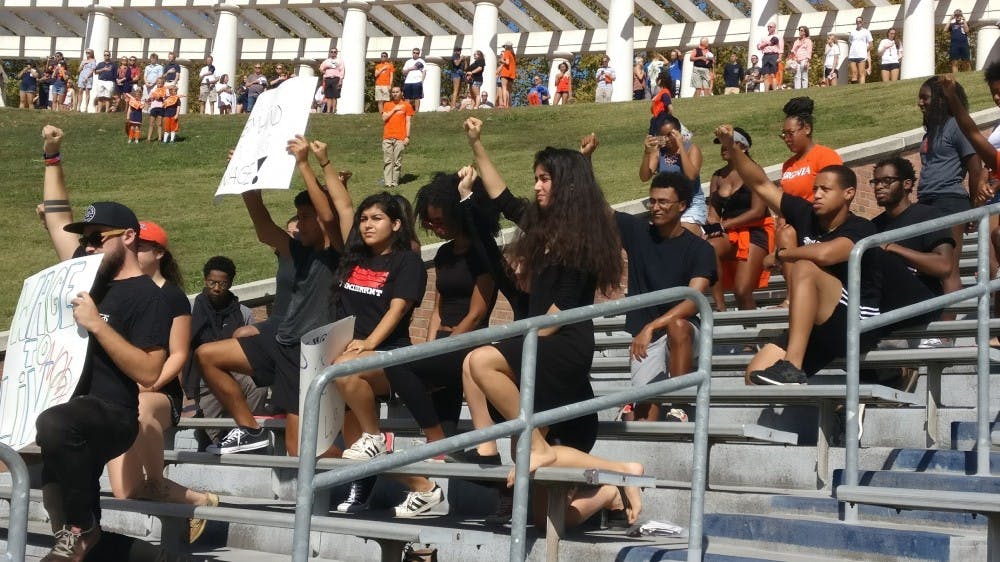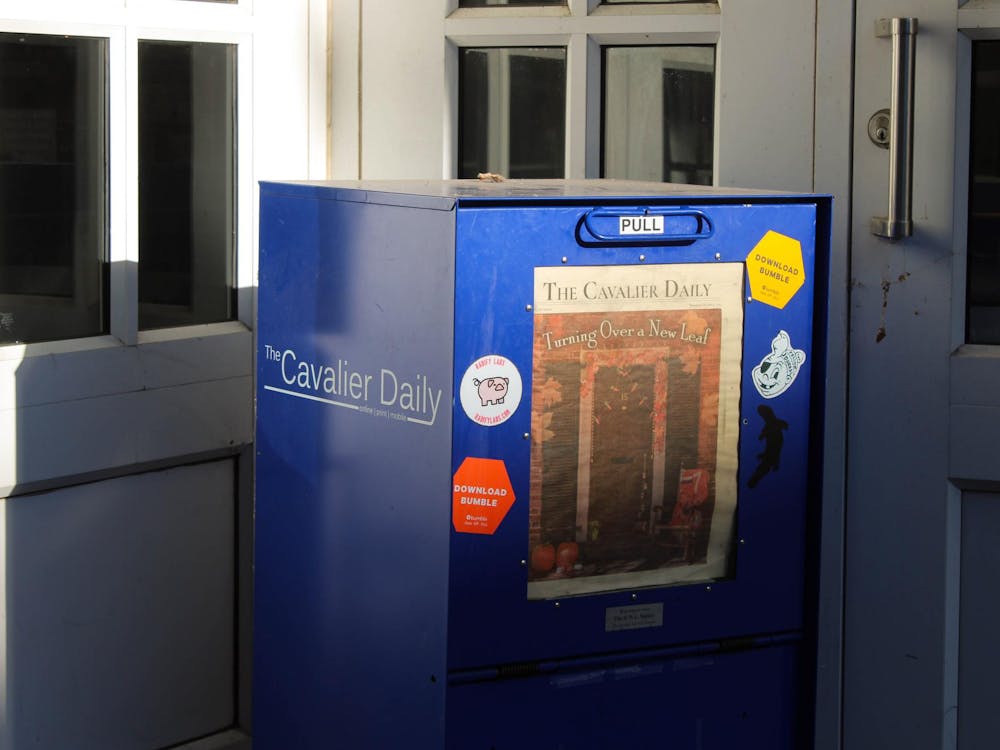Saturday afternoon’s Bicentennial football game was met with a protest organized by the Black Student Alliance in order to support both the demands from the “March to Reclaim our Grounds” and those who have taken a stand against white supremacy.
Approximately 20 students clad in black marched to Scott Stadium and kneeled on the bleachers in the student section during the playing of the national anthem.
The protest was held in solidarity with National Football League quarterback Colin Kaepernick, who began kneeling during the national anthem in 2016. The movement has brought attention to forms of institutional racism, such as mass incarceration, voter suppression and police brutality.
“We’re really tying together what’s happening nationally to the demands on Grounds,” Wes Gobar, BSA President and fourth-year College student, said.
Although Kaepernick began kneeling last year, the protest was recently thrust back into the national spotlight after President Donald Trump criticized it, saying NFL team owners should fire the players who choose to kneel during the national anthem.
The march began around 11:30 a.m. at the Garrett Hall bus stop, nicknamed the “Black Bus Stop.” Students carried various posters and signs, including ones that read, “We demand a living wage” and “No to deportation, support DACA.”
“The thing is, we voted about a month ago to add these two demands, which is living wage for all U.Va. contracted employees and then also in-state tuition and enrollment for DACA,” Gobar said. “We will put out a statement announcing that very soon after the game, but we wanted to use this platform right now to bring attention to that.”
As the group marched down McCormick Road, football fans who were tailgating and walking to the game watchedd on. A woman in a passing car shouted, “That’s ridiculous!” to the protesters, and a man standing near the sidewalk told the students they shouldn’t be protesting, claiming a football game is meant to be a lighthearted event.
“People say, ‘Oh I go to football to watch football, not to protest,’ but you can’t tell someone when to protest,” Gobar said. “That’s the point. It’s supposed to bring awareness to issues in an uncomfortable fashion.”
Evelyn Wang, chief publicity officer for the Minority Rights Coalition and fourth-year Commerce student, said she saw the location of the protest at a football game as being impactful to the overall message.
“...It shows solidarity for the athletes across the world who are being punished … By their coaches, their families for speaking out against injustice in the world,” Wang said.
Holding the protest with the Bicentennial Launch Celebration as a backdrop was also significant, according to Nathan John, BSA Political Action advisor and third-year Batten student.
“...The Bicentennial is a significant time for us to not only celebrate, but to look back at the history of injustices that has revisited upon people and the bodies of color at this University,” John said. “We don’t want all of the energy to be focused just on blind revelry, the celebration of … People must confront the things the things that are still left undone.”
Because the Bicentennial celebration also brought many alumni to Grounds, the protest was able to be seen by people other than current University students, John said.
“People might read about it the next day and might hear about it on the news, but for this space, for what we are trying to accomplish, for this style of protest, we want to bring the issue to a space where people would otherwise not see it,” John said.
Third-year College student Laurie Findley said she chose to participate in order to show support for those who face injustices.
“I just think it’s important, even if I’m not directly experiencing injustice due to the privilege of my skin tone … To stand with those who are experiencing troubles, especially after the events in Charlottesville and across the country,” Findley said.
Sydney Bradley contributed reporting to this article.







